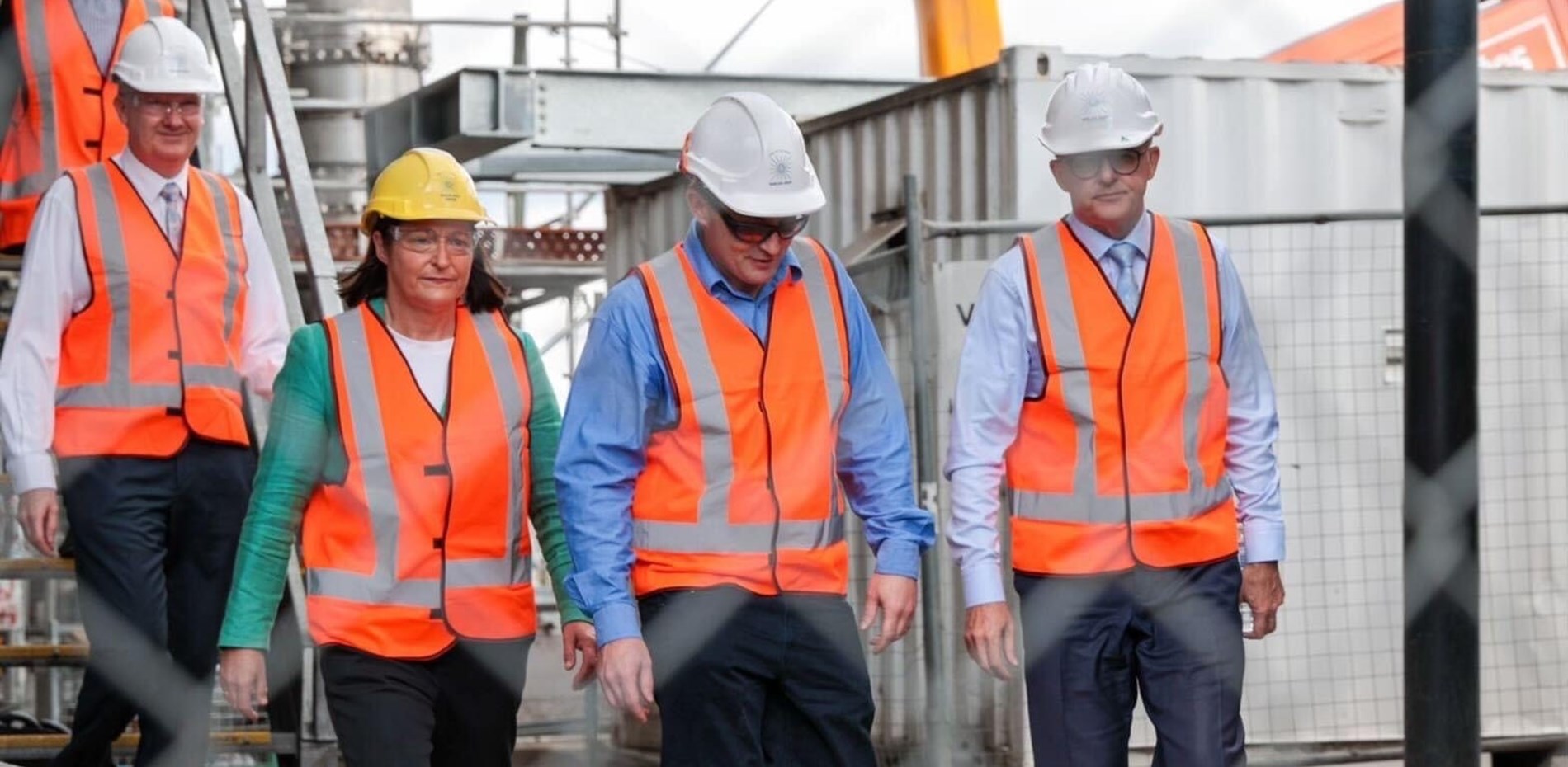Mrs PHILLIPS (Gilmore) (13:21): I'm really delighted to speak on this motion today, to give an update on the fantastic work the Albanese Labor government is doing to progress free trade agreements in places like India, the UK and Europe. There is so much work going on to get these agreements back on track, after some fumbling by the previous government.
Our export industries on the New South Wales South Coast are hugely important. Our critical agricultural industries like dairy, beef and seafood, as well as wine, beverages, defence industry and manufacturing, rely heavily on exports to survive. We are also huge contributors to New South Wales's and Australia's export industry. We are very important economically. My electorate has the highest concentration of dairy cattle in New South Wales, and we have one of the oldest dairy industries in Australia. I come from a dairy farming family and I understand how important our exports are. Dairy exports, of course, are hugely important. Asia is the largest destination for Australian dairy, so a good working relationship with China is critical. That's why we're working on getting that relationship back on track.
We also produce significant beef exports, as well as exporting seafood, like shellfish and more. For example, the new Moruya shellfish hatchery, supported with Australian government funding, will provide an export-accredited packing centre to meet overseas demand for shellfish, which can also be used by other food producers to value-add, pack and dispatch their produce. Eurobodalla Shire Council expects that the $4.8 million facility, which finished construction in June, will be operational by November. That's just fabulous and a great support for our shellfish farmers in the Eurobodalla.
In the Shoalhaven, the Shoalhaven Export Hub was launched at the end of 2020. Again, it was supported with an Australian government grant to help small and medium enterprises to grow, to export and to increase local and regional jobs. The hub is a network of businesses working together to harness opportunities in global markets and build skills and contacts for industry-wide local benefit. Just last week, I was speaking with a local defence industry manufacturer, Air Affairs, who told me that, before COVID, international exports accounted for 70 per cent of their business. That's absolutely huge. The Shoalhaven is one of the biggest contributors to New South Wales's manufacturing exports—around 30 per cent.
Manildra Group is a family-owned manufacturing business in Bomaderry. It was the first Australian company to export gluten to the UK, in the early 1970s. The Australia-UK Free Trade Agreement is critical to helping Manildra access the UK market. Without it, the tariffs and quotas imposed on most of its products are prohibitive. The agreement will help Manildra expand its opportunities, so I'm really proud of the work we're doing to progress the UK free trade agreement. The Albanese government is working to complete all the parliamentary and legal processes on the Australia-UK Free Trade Agreement as quickly as possible. Early entry into force of this agreement will allow Australian exporters to take full advantage of the tariff cuts it provides. The agreement will open up opportunities across the dairy and beef industries. It will help manufacturers like Manildra, and it will eliminate tariffs on Australian wine, which by value is Australia's largest dutiable export to the UK. It will also enhance pathways for workers and young people to work in both countries—something I know our seasonal growers will also be happy about.
We are looking to advance the parliamentary process for the Australia-India Economic Cooperation and Trade Agreement, an interim agreement, while also resuming negotiations for a full, comprehensive economic cooperation agreement. The trade minister met with India's Minister of Commerce and Industry in June and committed to rapidly recommence negotiations on the full agreement.
We are restarting negotiations with the Europeans to get a good outcome on the EU free trade agreement. The Prime Minister brought these negotiations back on track during his June visit to Europe, and the next round of negotiations will start on 17 October. Ultimately, our negotiations with the EU will be concluded only when we have a good deal that is in our national interest and delivers commercially-significant new market access for our agricultural products. That will be good news for local farmers. Australian industry and consumers can be confident that we will drive a hard bargain, as we always do, to achieve an overall agreement of benefit to Australia. Our government is committed to securing Australia's global competitiveness in trade.



